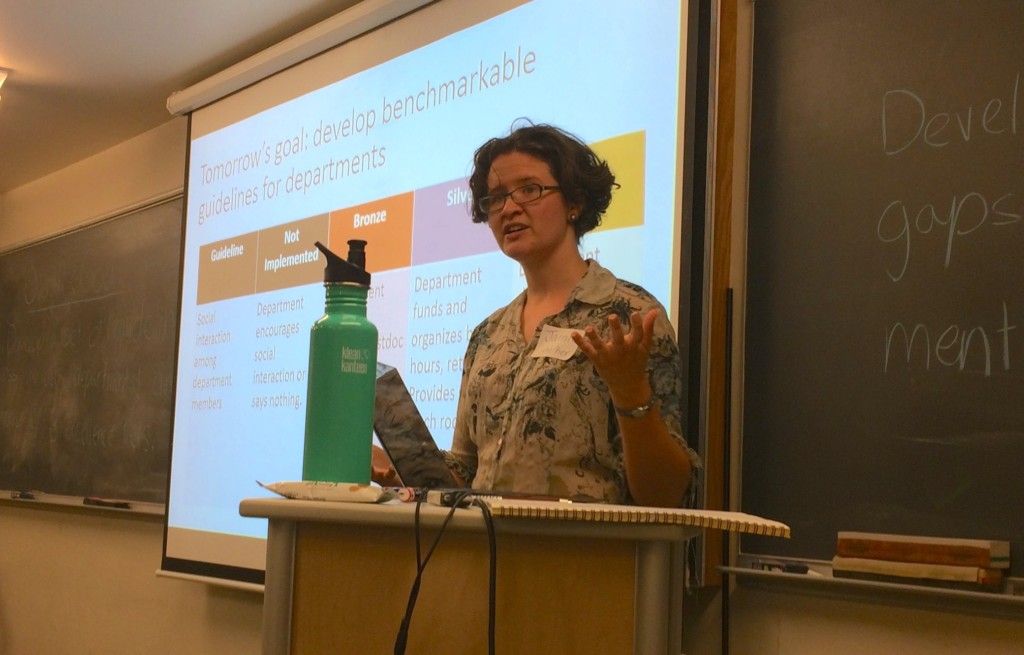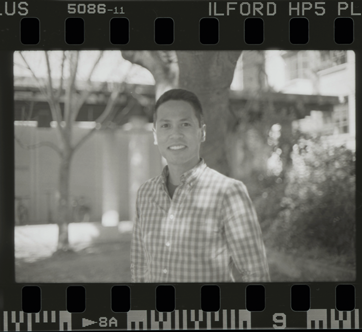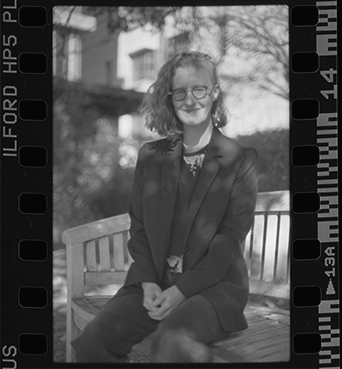
As a second-year graduate student, I haven’t worked in
academia for very long; yet, it’s been long enough to hear several mentorship
horror stories. I’ve heard stories of principal investigators (PIs) who are
consistently verbally abusive, hang on to graduate students for eight years, or
set a postdoc on fire. Early career researchers (graduate students and
postdocs) who have the opportunity to hear such stories through the grapevine before
joining a lab can avoid the worst of it. Others find out through personal
experience.
These are particularly egregious examples of bad mentoring,
but anecdotes aside, early career researchers have a problem finding good
mentorship. Academia has strikingly high rates of sexual harassment
and mental illness. Postdocs from
countries outside the United States are sometimes [deliberately
exploited](https://www.sciencedirect.com/science/article/pii/S0048733318302312?via=ihub) based on their tenuous visa status. Scientists from
underrepresented groups are leaving
non-inclusive academic work environments. And PIs themselves have few
opportunities or resources to help improve their mentoring.
Put together, this paints a worrying picture, in which
widespread mentoring issues are harming early career researchers and even [driving
them away from research](https://cgsnet.org/cgs-occasional-paper-series/university-georgia/chapter-1).
These problems are sobering, but scientists who gathered at Berkeley’s
[Mentoring Future
Scientists](http://www.futureofresearch.org/mentoring/) meeting on June 13–14 refused to believe they are unfixable.
Spearheaded by Future of Research,
a nationwide advocacy group for early career researchers, the meeting brought
together researchers from many career stages to develop guidelines to improve
mentoring in academia. The central meeting was held in Chicago, while local
academics ran satellite meetings across the country, ranging from Boston to
Columbus to Berkeley itself. Dr. Jamie Lahvic, a postdoc in UC Berkeley’s
Molecular and Cell Biology department, was inspired to organize a local meeting
when she learned that Future of Research had a constructive plan to address
structural problems in academic training. “So many of my Berkeley colleagues
are forward-thinking and ready to take action,” she added, “so I really wanted
Berkeley to be a part of it!”
Despite the early hour of the local meeting—catching the
keynote speech in Chicago, two time zones ahead, made for an early start—there
was a strong turnout of participants from a wide array of career stages.
Postdocs, graduate students, faculty, staff scientists, and even a few
undergraduate students brought diverse perspectives to mentoring issues. For
instance, one postdoc mentioned that confining repeated experiences of poor
mentorship to the rumor mill “means that the institution condones that
behavior. It’s part of the regular variation ... just try not to step in the
bear trap.” A faculty member responded with a different take, saying that even
if students know which faculty to avoid, departmental leadership often doesn’t
hear about negative rumors in the first place, precluding consequences for poor
mentoring.
While the problems facing mentoring are serious, the overall
mood at the Mentoring Future Scientists meeting was positive, as Berkeley
researchers focused on how to make meaningful change. Participants began by
brainstorming qualities of “dream departments” to identify the ideals Berkeley
researchers want to work towards. Participants shared their visions of
departments in which everyone has the resources to support mental health, with
cultures that celebrate diversity and abolish sexual harassment. A strong
social community including postdocs and technicians, not just graduate
students, was also emphasized. In the ideal department, students agreed,
researchers could focus on science rather than on coping with poor mentorship.
As the conference continued, Berkeley researchers’ proposed
solutions became more concrete. For instance, to help resolve issues in which a
mentee might fear reporting an inept or even exploitative mentor, one group
suggested providing a third-party anonymous reporting service. Mentoring
workshops could be provided for all career levels and include trainings on how
to give and receive difficult feedback. Many proposed solutions focused on
improving communication between individual mentors and mentees, such as clearly
stating the expectations and responsibilities of both PIs and early career
researchers, or holding annual meetings to discuss researchers’ professional
development plans and career goals. Finally, the researchers at UC Berkeley agreed
that structural change must be accompanied by cultural change, in which
mentorship is explicitly valued in the department.
There will, of course, be barriers to enacting these ideas. At
most academic institutions, mentoring resources for faculty members are poorly
publicized, if they exist at all. Established faculty currently have few
incentives to change existing mentoring practices. Even for faculty sympathetic
to academia’s mentoring issues, additional mentoring training could be seen as
yet another responsibility to add to an already overburdened schedule. Efforts
to improve mentoring resources could fizzle out as students graduate and
faculty change committee roles. And efforts to improve departmental culture,
especially equity initiatives, require extra work that often falls
disproportionately on women and underrepresented minorities.
It’s easy to feel powerless to change things as an early
career researcher in an environment largely run by faculty. But researchers
trying to improve mentoring have some powerful tools at their disposal, said
Dr. Melissa McDaniels, co-director of the [National
Research Mentoring Network](https://nrmnet.net/)’s Master Facilitator Initiative and keynote speaker
for the central meeting. Previous research on the science of mentoring, as well
as the current national focus on mentoring from powerful allies like the National
Institutes of Health and the National Science Foundation, can be leveraged by students
and postdocs to produce change in their departments. “The purpose of mentoring
is to strive for increased diversity, equity, and empowerment of all mentees,” McDaniels
said, adding that many resources to promote equity in mentoring have already
been created. For instance, course materials for [Entering
Mentoring](https://www.hhmi.org/science-education/programs/entering-mentoring), a training series which improves [mentor self-efficacy and
mentee satisfaction,](https://www.ncbi.nlm.nih.gov/pubmed/26033872) are freely available online.
In a final workshop, Berkeley attendees developed specific
benchmarks for critical guidelines. These “excellence tiers”, in bronze,
silver, and gold, can be used to rank departments on topics such as
mentor/mentee training and support of mental health. To get a “bronze” ranking
for vertical accountability, for instance, a department must have a specific
person dedicated to conflict mediation. A “gold” ranking requires a conflict
resolution system that is accessible, anonymous, and consequential, potentially
affecting faculty promotions or the ability to take new students. At least
initially, rankings will be voluntary and self-evaluated to help encourage
adoption.
While nobody wants their department to be rated poorly, one
attendee said, being able to voluntarily advertise a positive excellence tier
could motivate departments to adopt the guidelines. The final guidelines
produced by all Mentoring Future Scientists meetings will be posted on the Future of Research website.
The next step is for academic departments, at UC Berkeley and across the
country, to sign-on to the guidelines and evaluate their own excellence tiers.
The problems facing academic mentorship today—ranging from poor communication, to lack of accountability, to harassment and exploitation—are formidable. But the motivated, realistic changes proposed by researchers at all levels show that these problems are also solvable. One day, said University of North Carolina graduate student Susanna Harris, researchers across the board will be able to look back at their academic mentors and say, “Those are people who wanted me to succeed in the exact way that I wanted to succeed.” Backed up by established research, and in the midst of widespread motivation to improve mentoring, positive change is a real possibility. But it will take a lot of work, as Juan Pablo Ruiz, a facilitator at the Chicago meeting, reminded attendees: “This change isn’t just going to happen ... we need to make it inevitable.”
Featured Image: Dr. Jamie Lahvic, a UC Berkeley postdoc and the organizer of the Berkeley Mentoring Future Scientists meeting. Source: Sophia Friesen.





